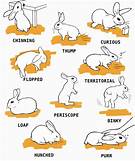Are Ducks Good Pets? A Comprehensive Guide to Duck Care and Ownership
Ducks are fascinating and unique creatures that can make delightful companions. However, before you decide to bring a duck into your home, it is essential to weigh the pros and cons of duck ownership and ensure you are prepared to provide them with the proper care and attention.

Benefits of Owning a Duck
1. Friendly and Social Creatures:
Ducks are highly social animals that thrive in flocks. They are friendly and playful and enjoy interacting with their human companions. Ducks can also form strong bonds with their owners and become devoted pets.
2. Low-Maintenance Pets:
Compared to other pets, ducks require relatively low maintenance. They do not require daily walks or frequent grooming. Their diet consists mainly of commercial duck feed, supplemented with fresh vegetables and fruits.
3. Entertaining and Educational:
Ducks are captivating creatures to observe. They have distinct personalities and behaviors that can provide hours of entertainment. Additionally, owning a duck can be an educational experience for children, teaching them about animal care and responsibility.
Challenges of Duck Ownership
1. Messy and Destructive:
Ducks can be messy creatures. They splash water, shed feathers, and produce droppings that can quickly accumulate. They may also be prone to chewing and digging, potentially causing damage to your property.
2. Noisy Birds:
Ducks are not known for their quiet nature. They can produce a variety of vocalizations, including quacking, honking, and hissing. These sounds can be disruptive, especially if you live in a densely populated area.
3. Need for Outdoor Space:
Ducks require access to outdoor space where they can swim, forage, and socialize. This can be a challenge if you live in an apartment or have limited outdoor space. You will need to provide your ducks with a safe and secure enclosure that meets their needs.
Factors to Consider Before Getting a Duck
1. Your Lifestyle:
Assess your lifestyle and determine if you have the time and resources to care for a duck. Consider your daily routine, travel plans, and whether you have someone to look after your duck in your absence.
2. Local Regulations:
Check local regulations regarding duck ownership. Some areas may have restrictions or prohibitions on keeping ducks as pets. Ensure you are compliant with all applicable laws and regulations.
3. Veterinary Care:
Ducks require regular veterinary checkups and vaccinations. Locate a veterinarian who is experienced in treating waterfowl and ensure you can afford the cost of routine care and potential medical emergencies.
4. Long-Term Commitment:
Ducks can live for up to 15 years. Before bringing a duck into your home, consider if you are prepared to provide long-term care and attention for the animal's entire lifespan.
In conclusion, while ducks can make wonderful companions, it is crucial to carefully consider the responsibilities and challenges associated with duck ownership before making a decision. By thoroughly researching and preparing, you can ensure that you provide your duck with a happy and healthy home.Declaration: All article resources on this website, unless otherwise specified or labeled, are collected from online resources. If the content on this website infringes on the legitimate rights and interests of the original author, you can contact this website to delete it.





